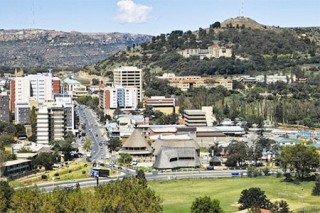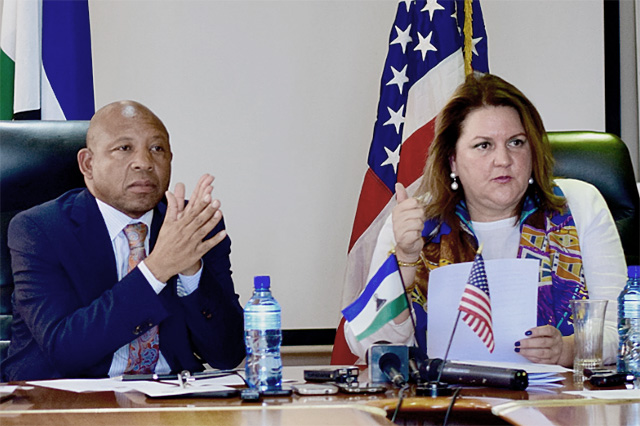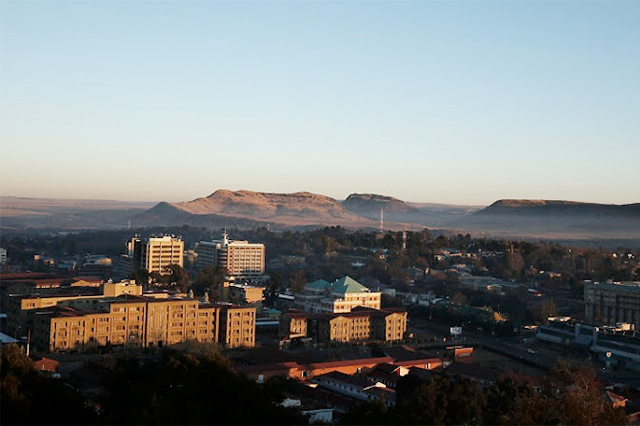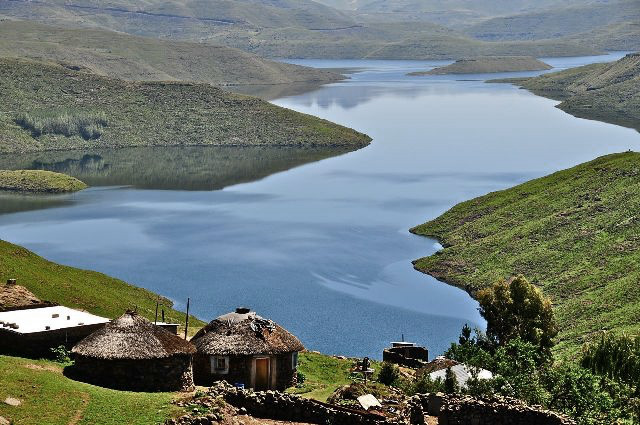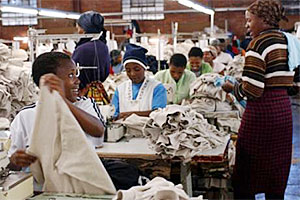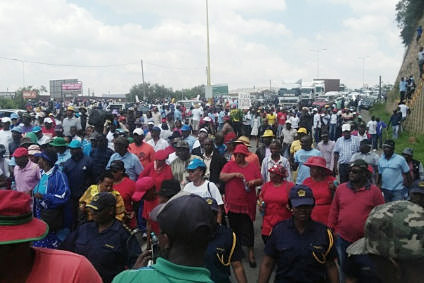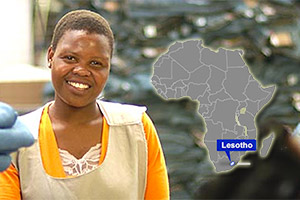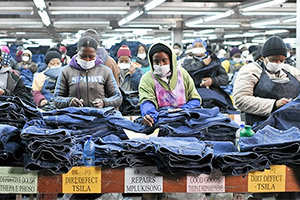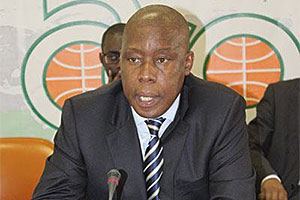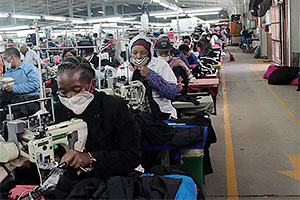Has Lesotho lost its way?
It is an impoverished backwater and a byword for poverty and squalor. It ranks among the world's least developed countries. Its two million population is ravaged by Aids and has the third highest prevalence rate in the world after South Africa and Botswana. Life expectancy has plummeted from 48 to 39 years, largely as a result of Aids. More than 40 percent of its population can’t find work. An alarming 70-plus percent live below the poverty datum threshold of a dollar a day.
Its capital, Maseru, is mostly a wide expanse of slums and cemeteries, with little water-borne sewerage. Pit toilets are the norm.
Apart from the network of Chinese-owned textile factories which provide the most private sector jobs, water exports to South Africa and some diamonds, it produces almost nothing of significance to export. The manufacturing base is almost non-existent. Most of its products are imported from South Africa.
In the UN Human Development Index for 2011, it was ranked 160 out of 187 countries. It rarely makes international headlines despite its persistent internal political and economic problems. Except when its long-time ruler Pakalitha Mosisili makes outlandish remarks such as his well-publicised statement in support of Zimbabwe President Robert Mugabe that “As Africans, we would rather misgovern ourselves than be better governed by foreigners (the West)”.
Or when endemic corruption catches the eye, such as the 2007 scandalous sales of official, state-of-the-art, brand-new Mercedes-Benzes to ministers and senior officials for paltry amounts of between R3 000 and R4 000 each.
One might assume that Lesotho’s politicians would be grappling with lifting their country out of squalor. Instead,
petty bickering within the ruling class and among the many parties, with no substantive policy debates or analysis, is the order of the day. Barely a month passes without a new political party being formed or an existing one splitting. None of this has anything to do with governing the country. It’s purely jostling for a bigger slice of scarce state resources.
From the days when dictator Leabua Jonathan lost elections and simply refused to hand over power, through South Africa’s military invasion in 1998 after riots, the silliness of Basotho politicians seems to know no bounds.
And now, as new general elections loom, they are still bickering about how the 40 seats reserved for proportional representation were “wrongly” allocated in 2007.
Former Botswana president Ketumile Masire, appointed by the Southern African Development Community to mediate in that dispute, packed his bags and left with no solution, under a barrage of attacks from Mosisili for alleged bias towards the opposition. Masire’s only bias was towards fairness and reasonableness.
It’s not as if the country is completely hopeless. It is simply the politics that is stupid. The splendour of its snow-covered mountains in winter could easily turn it into the skiing capital of the region, earning substantial tourism revenue. Outside its slum capital and other dilapidated towns, the sheer natural beauty of Lesotho is amazing.
But nobody in government seems awake to this potential. No one is marketing the country’s existing tourist attractions, let alone trying to attract international investors.
Even the World Cup went unnoticed in Lesotho. Local entrepreneurship among the locals is almost non-existent. When former US president Bill Clinton announced duty free exports of textile products to the US, through his AGOA initiative, it was left to the Chinese and Taiwanese to come and build factories to produce such simple items as jeans and T-shirts to export.
The locals only flocked to these factories to work for a pittance. When the going got tough, particularly after the expiry of the multi-fibre agreement which has enabled cheap Chinese exports into America, the foreign factory owners simply closed shop.
Last week political instability, always seething below the surface, boiled over once again. Mosisili, ever inventive when it comes to clinging to power, abandoned his ruling Lesotho Congress for Democracy (LCD) party to form the Democratic Congress (DC) to maintain his majority in parliament.
He realised he was about to be ousted as LCD leader by rivals and a majority of party members who have grown increasingly unhappy with his leadership.
That would have cost him the prime ministership and all its privileges. But he knew he had the support of a majority of LCD MPs, who also felt their jobs and privileges were threatened.
So they pulled off a “palace coup”, with 44 of the LCD’s 66 MPs crossing the floor to join the new party. That enabled Mosisili to survive a no confidence vote and keep his job as prime minister.
But Mosisili’s manoeuvre has prompted fears of protest spilling on to the streets again, as it did in 1998.
Already his political opponents are crying foul, accusing him of subverting the parliamentary process. Observers say much will now depend on whether the general elections scheduled for May will be clean.
It might also depend on whether opposition parties succeed in their legal challenge. They have threatened to make the country ungovernable if the legal route fails.
Mosisili says the DC will win the May election and so secure an undisputed mandate. That’s by no means certain.
The All Basotho Convention, which broke away from the LCD in 2007, swept most urban seats in elections that year, while the LCD retained its rural strongholds.
With his new DC unlikely to have time to campaign, nothing is guaranteed. Moreover, Mosisili has nothing to show for his rule, which began in 1998 after he took over the LCD from the late Ntsu Mokhehle, who had himself split from the Basutoland Congress Party to form the LCD.
In fact, the perennial failure by the proliferating opposition parties to unite into one or two strong alternatives is Mosisili’s best chance of clinging to power again in May.
One recently-formed party has questioned Lesotho’s viability as a separate nation state and has advocated total integration into South Africa in its election platform.
While this viewpoint is unlikely to gain traction among locals, it may well be the best option to lift Lesotho from squalor – in the absence of any will to do so by the country’s leaders. – Daily News Foreign Service


